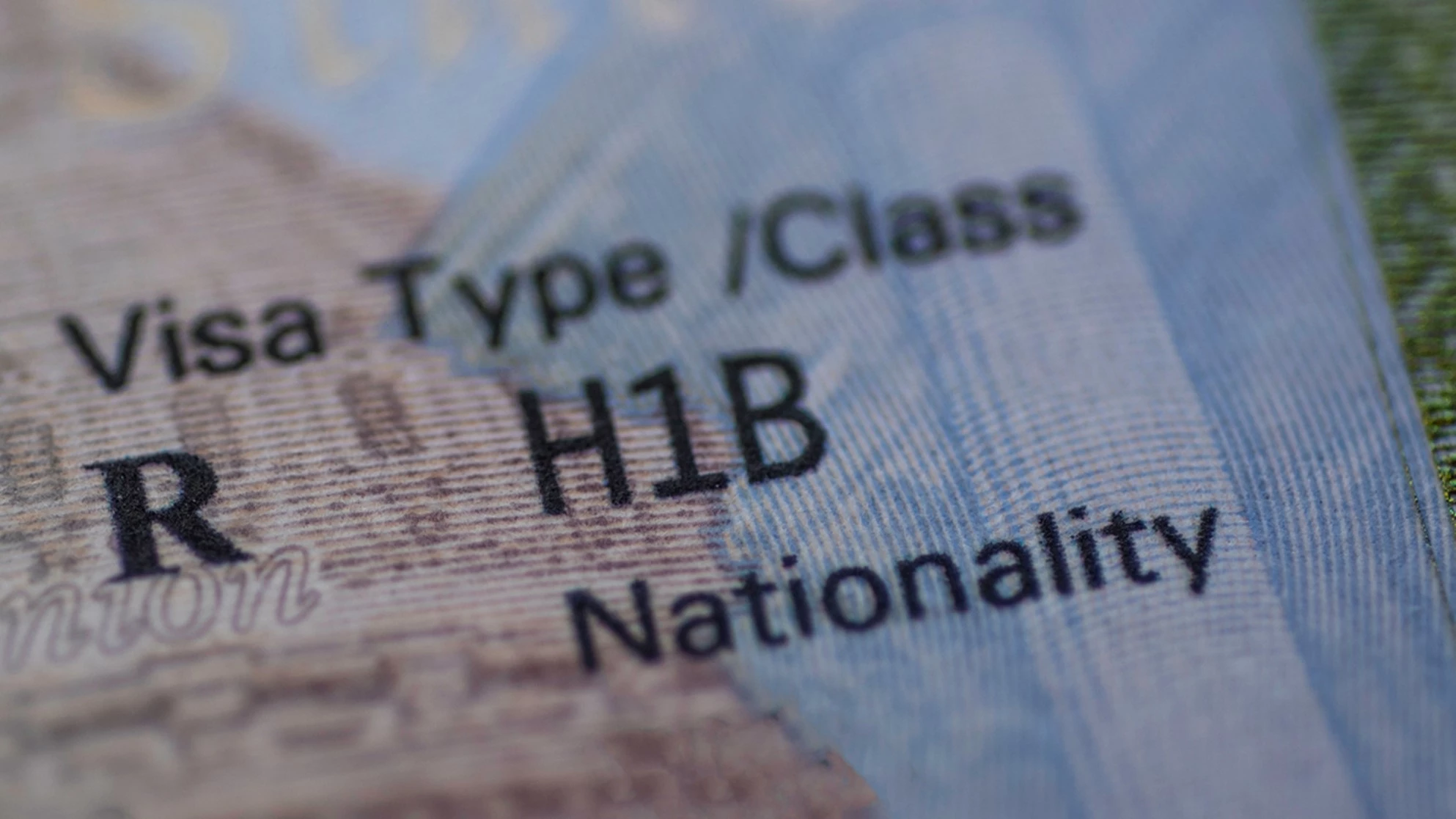
On September 24, 2025, DHS issued a proposed regulation to change the annual H-1B visa lottery from a random lottery of registrants to a weighted system favoring those offered higher salaries by US employers.
Background
Each fiscal year beginning on October 1st, 65,000 H-1B specialty occupation temporary work visas are available to those who do not already hold H-1B status, plus an additional 20,000 for those holding US advanced degrees. More H-1B visas are sought each fiscal year than there are H-1B visas available, so USCIS randomly selects registrants for these visas from an online registration portal that opens every March for a limited period. Because the lottery is random, registrants seeking H-1B visas are treated more or less uniformly. There is a slight advantage for those holding US-awarded advanced degrees, as they get a second chance due to the 20,000 additional H-1B slots. A second lottery is conducted for those visas immediately after the lottery for the 65,000.
Those already approved for H-1B status are not subject to the annual lottery when seeking changes in their employers or extensions of their H-1B status. In addition, H-1B workers at cap-exempt organizations are not subject to the annual cap. Such organizations include colleges/universities and certain research organizations. However, those holding cap-exempt H-1B visas who wish to change to a cap-subject employer must go through the annual lottery.
Proposed Changes
The proposed lottery system would require additional information about the salaries offered and the Department of Labor Occupational Employment and Wage Statistics (OES) wage level. Under the OES wage data system, every occupation is divided into 4 wage levels, with Level 1 being the lowest average wage for that occupation in the area of employment and Level 4 being the highest average wage. Under the weighted system, those with higher wages would have a greater chance of being selected due to additional entries in the selection pool:
- Level IV: 4 entries
- Level III: 3 entries
- Level II: 2 entries
- Level I: 1 entry
Accordingly, this system statistically favors higher-paid and higher-skilled workers.
As with the current random lottery, the proposed system remains beneficiary-centric, meaning that each person seeking an H-1B visa can only have a single registration in the system, but may have a higher chance of being selected depending on the salary offered. This limitation prevents an employer with US affiliates from submitting registrations for the same person to increase the chances of selection and then moving the employee through a change of employer petition to the company that desires to employ that person.
Under the proposed system, lottery registrations must include more information than under the current system:
- The highest OES wage level the proffered wage meets or exceeds
- The occupation (SOC) code for the position offered and area of intended employment (since wages vary by geographic location)
- If a position has multiple worksites, the wage level listed in the registration must reflect the lowest wage level
Information contained in the H-1B petition subsequently submitted to USCIS for those selected must match the information provided in the lottery registration. USCIS can deny an H-1B petition if any of the information deviates from what was contained in the registration, the wage level is reduced after selection but before petition submission, or USCIS does not believe that the job offer is bona fide.
The proposed rule also anticipates how to handle technical issues with the new registration system. If there is a suspension of the registration/lottery system (for technical or other issues), USCIS may direct employers to file the petitions to which the weighted selection process will be applied.
Interested parties are invited to submit comments to the proposed rule through November 24, 2025. DHS expects the final rule to be in place for the FY2027 lottery process that will take place in March 2026 (for the H-1B visas that become available on October 1, 2026).
- Partner
Ian’s practice focuses on business and family-related immigration matters. As part of the Labor and Employment team, Ian counsels corporate clients on various aspects of immigration and nationality law, including temporary ...
Search
Recent Posts
Categories
- Adjustment of Status
- Asylum
- Business Immigration
- CBP
- CIS
- Consular Processing
- Court Decisions
- COVID-19
- DED
- Deferred Action
- DHS
- DOL
- E-Verify
- EAD
- Enforcement
- F-1
- Federal Agencies
- Federal Laws/Legislation
- Global Immigration
- H-1B
- H-2B
- Homeland Security
- Humanitarian Relief
- I-9
- ICE
- Immigrant Visas
- L-1
- Labor Certification
- Legislation
- Naturalization
- News & Events
- Nonimmigrant Visas
- Other
- Processing Times
- REAL ID
- Refugees
- SSA
- State Department
- State Laws/Legislation
- TN
- TPS
- US Embassies
- USCIS
- Visa Lottery
- Visa Waiver Program
- Waivers
- Workplace Enforcement
Tags
- AC21
- ACA
- ACWIA
- Adam Rosser
- Adjustment of Status
- Adjustment of Status Applicant
- Adoption
- Advance Parole
- Agencies
- AILA
- Air Travel
- Alien Registration Requirement
- Application Service Centers
- Appropriations
- Arizona
- Asia
- Asylee
- Asylum
- Attorney General
- Awards
- B-1 Business Visitor
- B-1/B-2
- B-2 Tourist
- BALCA
- Biometrics
- Blanket L-1
- Board of Immigration Appeals
- Bob Quackenboss
- Brazil
- Brett Burns
- Brexit
- BRIDGE ACT
- Business Existence
- Business Immigration
- Business Immigration; USCIS; National Interest Waiver; labor certification
- Business Travel
- Buy American Hire American
- California
- Canada
- Cap
- Cap-Exempt
- Cap-Subject
- CARES Act
- CBP
- CDC
- Certification
- Chad
- Chaffetz
- Chambers USA
- Change In Location
- Change In Work Site
- Charities
- China
- Chris Pardo
- Citizenship
- Compliance
- Consular Processing
- Controlled Technology
- Coronavirus/COVID-19
- Court
- Covid test
- CPT
- Current Events
- Customer Identity Verification
- Customs and Border Protection
- DACA
- Decisions
- DED
- Deemed Export
- Deferred Action
- Deferred Inspection
- Department of Homeland Security
- Department of Justice
- Department of Labor
- Department of State
- DHS
- Diversity Visa
- Diversity Visa Lottery
- DOL
- DOMA
- Domestic Violence
- Donald Trump
- DOS
- DREAM Act
- Driver License
- DS-160
- DV Lottery
- DV-2019 Dates
- E visa
- E-1
- E-2
- E-2 investors
- E-2 Spouse
- E-2 Visas
- E-3
- E-3 Australians
- E-3 Spouse
- E-Verify
- E13
- E21
- EAD
- EADs
- EAR
- Earthquake
- EB-1
- EB-1 Backlog
- EB-2
- EB-3
- EB-5
- Ecuador
- El Salvador
- Electronic System for Travel Authorization
- Embassy
- Emily Burkhardt Vicente
- Employer
- Employment Authorization
- Employment Eligibility Verification
- Employment-Based Immigration
- ESTA
- ETIAS
- European Union
- eVerify
- Executive Order
- Executive Orders
- Exempt Employee
- Export
- Export License
- F-1
- Fairness for High Skilled Immigrants Act
- Family
- Family Relationships
- FAR
- Federal
- Federal Acquisitions Regulation
- Federal Contracts
- Federal Law
- Fees
- Filing Fees
- Fingerprinting
- Fingerprints
- Fiscal Year 2016
- Foreign Grads
- Form 140
- Form I-9
- Form I-944
- Form Updates
- Fourth Circuit
- France
- Fraud Detection and National Security Directorate
- Full Vaccination
- Furlough
- FY15
- FY2017
- FY2020
- Georgia
- Global Entry
- Global Mobility
- Golden Arrow
- Grace Period
- Green Card
- Greg Robertson
- Guam
- Guinea
- H-1B
- H-1B Cap
- H-1B Registration
- H-1B Workers
- H-1B1
- H-2
- H-2B
- H-4
- H-4 EAD
- H-4 Spouse
- H-4 Spouses
- Haiti
- Hawaii
- Help HAITI Act
- HIV
- Holly Williamson
- Homeland Security
- Honduras
- HR 1044
- Humanitarian Relief
- Hunton Andrews Kurth
- I-129
- I-140
- I-20
- I-485
- I-539
- I-601A
- I-765
- I-9
- I-94
- I-94 Automation
- Ian Band
- ICE
- iCert
- Identification Document
- Illinois
- Immediate Relatives
- Immigrant
- Immigrant Investor Program
- Immigrant Visa
- Immigrant Visas
- Immigration
- Immigration & Customs Enforcement
- Immigration in Sports
- Immigration News
- Immigration Uncertainty
- India
- Infopass
- International Offices
- Interns
- interview
- Interview Appointment
- Iran
- Iraq
- IRCA
- ITAR
- J-1
- Japan
- Josefina Augusto
- Juan Enjamio
- Kurt Larkin
- Kurt Powell
- L Visa
- L-1
- L-1 Intracompany Transferees
- L-1B
- L-2
- L-2 Spouse
- Labor
- Labor Certification
- Labor Market Test
- LCA
- Legal 500
- Legal Resident Aliens
- Legislation
- Liberia
- Liberian Nationals
- Libya
- License
- Limited Vaccine Availability
- Litigation
- Liya Green
- Lottery
- LPR
- M-1
- M-274
- M. Brett Burns
- Maryland
- Matter of A-B-
- Medical Exams
- Mexico
- Multinational Manager
- N-400
- NAFTA
- National Interest Exception
- National Interest Waiver
- National Labor Relations Board
- National Law Journal
- National Prevailing Wage Center
- National Visa Center
- Naturalization
- Natz
- Nepal
- New York
- News & Events
- NEXUS
- Nicaragua
- Nicaraqua
- Ninth Circuit
- NIV
- NLRB
- No-Match
- Nonimmigrant
- Nonimmigrant Visas
- Nonresident Alien
- North Korea
- Northern Mariana Islands
- NTA
- NVC
- O visa
- O-1
- Office Closures
- OPT
- Oregon
- P-1
- Passport
- Pérez v. Pérez
- PERM
- Permanent Residents
- Policy
- Portability
- Practical Training
- Preclearance
- Preflight Inspection
- Premium Processing
- Prescreening
- Presidential Proclamation
- Prevailing Wage Request
- Priority Date
- Pro Bono
- Processing Times
- Prohibited Entry
- Prosecutorial Discretion
- Provisional Waivers
- Public Access Files
- Public Charge
- REAL ID
- Reciprocity
- Recognitions
- Recovery Rebate
- Reducing Salary
- Refugee
- Refugees
- Registry
- RFE
- Rugby
- Ryan Glasgow
- Safe-Harbor
- Same-Sex
- Satisfactory Departure
- SAVE Jobs USA
- Scott Nelson
- SCOTUS
- Section 1
- Selective Service
- SENTRI
- Sessions
- Shaena Rowland
- Sierra Leone
- Social Media
- Somalia
- South Sudan
- Special Events
- State Department
- State Law
- Stateside Waivers
- STEM OPT
- Stepchildren
- Stephen Pattison
- Sudan
- Supplementary Lottery
- Supreme Court
- Syria
- Tax Credit
- Temporary Visas
- Terence Connor
- Texas
- TN
- TN visa
- TPS
- Tracker 8
- Trailblazer
- Trainees
- Transit Without a Visa
- Travel
- Travel Ban
- Travel Bonds
- Travel Restrictions
- Trump Administration
- Trusted Traveler
- Tsunami
- U Visa
- U.S. Customs & Border Protection
- U.S. Department of State
- U.S. Embassies
- Ukraine
- UN
- Unemployment
- Unemployment Benefits
- Unfair Labor Practices
- Unlawful Presence
- US Citizenship and Immigration Services
- US Customs and Border Protection
- US Department of State
- US Embassy
- US passports
- US Travel Ban
- USCBP
- USCIS
- USD140
- USD150
- USD390
- Vaccine Passport
- Venezuela
- VIBE
- Visa
- Visa Bond
- Visa Bulletin
- Visa Control
- Visa Lottery
- Visa Revalidation
- Visa stamp
- Visa Waiver
- Visa Waiver Program
- Visas
- Visitor Visas
- VWP
- Wait Times
- Waivers
- Webinar
- Whistleblower
- WHO
- Windsor v. United States
- Work Authorization
- Work Permits
- Work Search
- Worksite Enforcement
- Worksite Inspection
- World Health Organization
- Yemen

